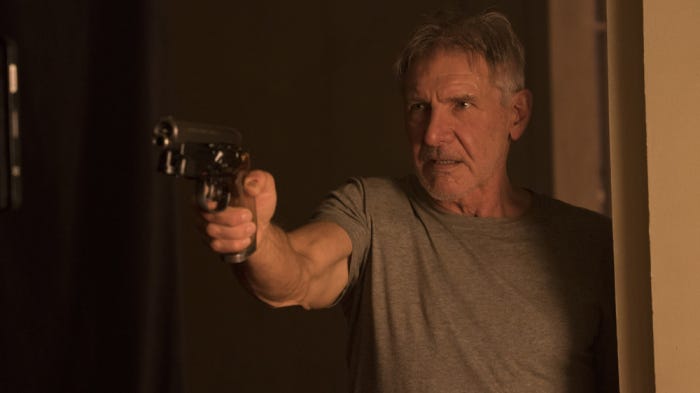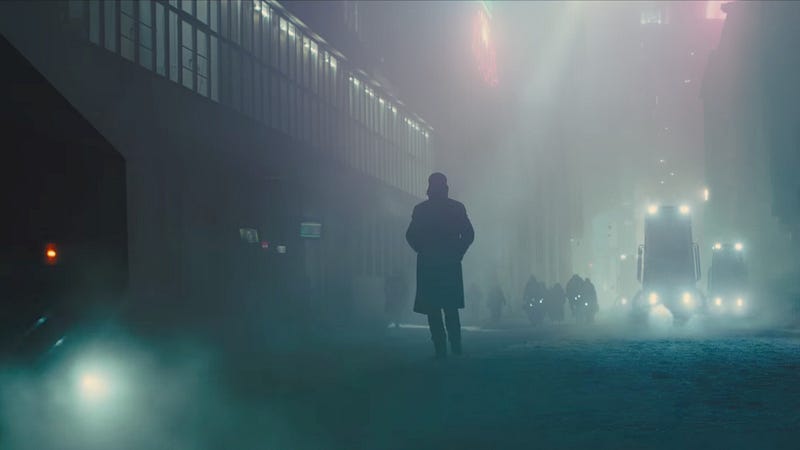In a year already rife with good science fiction, French-Canadian director Denis Villeneuve seeks to make his mark with the highly anticipated sequel to everyone’s favourite 1982 cyberpunk classic. Blade Runner 2049, set thirty years after the events of the original film, is the story of K (Ryan Gosling), an LAPD blade runner who discovers a long-buried secret that could cause a war between species. His discovery leads him on a quest to find Rick Deckard (Harrison Ford), who has been missing for three decades. The story here doesn’t seem as complex as in the original, which is a blessing in disguise: it deals with familiar themes like the nature of humanity VS artificial intelligence while being accessible to newer fans of the genre.
2049 boasts a stacked supporting cast, including Jared Leto as the enigmatic leader of the Wallace corporation; Robin Wright as K’s superior, Lt. Joshi; Ana de Armas as Joi, K’s companion; and Dave Bautista as Sapper Morton, a replicant farmer. Despite all this, Gosling and Ford shine. I believe they’re at their best when playing cool, muted protagonists, and it definitely shows here. Both are less about words and more about action, while adding doses of emotion in the second half of the movie that really round out their respective characters. I think Gosling might have found his niche.

A cyberpunk film isn’t a cyberpunk film without good visual effects and great music — thankfully, 2049 has both in spades. Villeneuve teams once again with Roger Deakins to provide some of the best shots of the year, while the CGI effects used throughout the film are some of the best I’ve ever seen. The striking, vibrant colour palette helps to create some jaw-dropping set pieces. The near-future tech used in the film looks better than ever, expanding on the use of analog over digital that Ridley Scott envisioned in the first film. Composers Hans Zimmer and Benjamin Wallfisch have created a beautiful score reminiscent of Vangelis’s epic retro suite. Combine that with some stellar sound design and it’s easy to see why audiences are so easily sucked in.
Unfortunately, though they are minor, the film isn’t without flaw. As in the original, the pacing is less than perfect, especially considering the 163-minute runtime. Some scenes were overlong and drawn out without adding much to the story. This may be part of the reason why the film isn’t doing so well financially yet. Everyone knows the name Blade Runner means a complex neo-noir story — that the sequel is over two and half hours long may be a little daunting to some.

Nonetheless, to me this film was mesmerizing to watch. Smart, intense, and an absolute feast for the eyes and ears, it provides a cohesive story that breathes the same air as the original but stands very well on its own. It makes an amazing addition to Villeneuve’s already stellar portfolio. Whether or not Blade Runner 2049 will stand the test of time as much as its predecessor remains to be seen, but one thing is for sure: it is a fantastic sequel and a proper, proper sci-fi flick.
Blade Runner 2049 earns a well-deserved DIAMOND rating.
This article was originally published on shifteronfilms.com.





